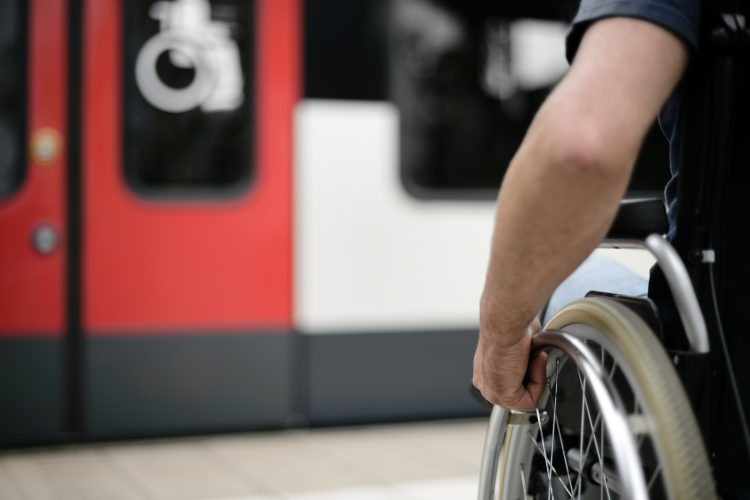DfT announces strategy to boost accessibility across UK transport network
- Like
- Digg
- Del
- Tumblr
- VKontakte
- Buffer
- Love This
- Odnoklassniki
- Meneame
- Blogger
- Amazon
- Yahoo Mail
- Gmail
- AOL
- Newsvine
- HackerNews
- Evernote
- MySpace
- Mail.ru
- Viadeo
- Line
- Comments
- Yummly
- SMS
- Viber
- Telegram
- Subscribe
- Skype
- Facebook Messenger
- Kakao
- LiveJournal
- Yammer
- Edgar
- Fintel
- Mix
- Instapaper
- Copy Link
Posted: 28 July 2021 | Intelligent Transport | No comments yet
The DfT has announced plans to improve accessibility for disabled travellers in the UK, including an audit of train stations and new regulations for bus operators.


Disabled passengers will have better access to public transport and a bigger say in how they travel, under a new strategy aiming to boost inclusivity across the entire UK network.
The Department for Transport (DfT) is today (28 July 2021) unveiling a range of initiatives to remove barriers and improve confidence for disabled people as they return to trains, buses and taxis after the pandemic.
An audit of all UK train stations, originally pledged in the Williams-Shapps Plan for Rail, is now underway – helping to identify improvements and highlighting existing areas of excellence. The findings will form a new public database so people can better plan their journeys and, along with input from disabled passengers, will shape future investment in accessible rail travel.
The Government says it will also bring forward new regulations to force bus companies to provide audible and visual announcements onboard services. To help smaller companies achieve this, government grants will be boosted to £3.5 million. New research into the designs of bus stops and stations will ensure they are accessible for all.
The DfT will also support new legislation for taxis and private hire vehicles, protecting disabled passengers from being overcharged and to better ensure they get the right help from drivers.
“Disabled passengers should be empowered to use all forms of transport with the same confidence as everyone else – whether by taxi, train, bus or ferry,” said Accessibility Minister Chris Heaton-Harris.
In addition, DfT will work with consumer groups to design more accessible chargepoints for electric vehicles, as the industry steers away from fuel-burning cars.
And for longer journeys, new £450,000 funding will help deliver more accessible toilets, through the Changing Places programme, on top of the £2.2 million already invested, to ensure most motorway services have the right facilities for the quarter of a million people who cannot use standard accessible ones.
“It’s important that transport operators seek the views of disabled people to make sure services better suit their needs as the country recovers from the pandemic,” said Anthony Smith, Chief Executive of the independent watchdog Transport Focus.
“These measures will help remove barriers and improve access for all transport users.”
“We regularly hear from people living with muscle-wasting conditions who have had to cancel or cut short days out or don’t consider them at all, because of poor accessibility,” added Robert Burley, Director of Campaigns, Care and Support at Muscular Dystrophy UK.
“The strategy announced today is a step in the right direction to helping tackle the exclusion that so many disabled people face on a daily basis.”
Related topics
Accessibility, Passenger Accessibility, Passenger Experience, Public Transport, Transport Governance & Policy
Related cities
UK
Related organisations
Department for Transport (DfT), Muscular Dystrophy UK, Transport Focus
Related people
Anthony Smith, Chris Heaton-Harris, Robert Burley







